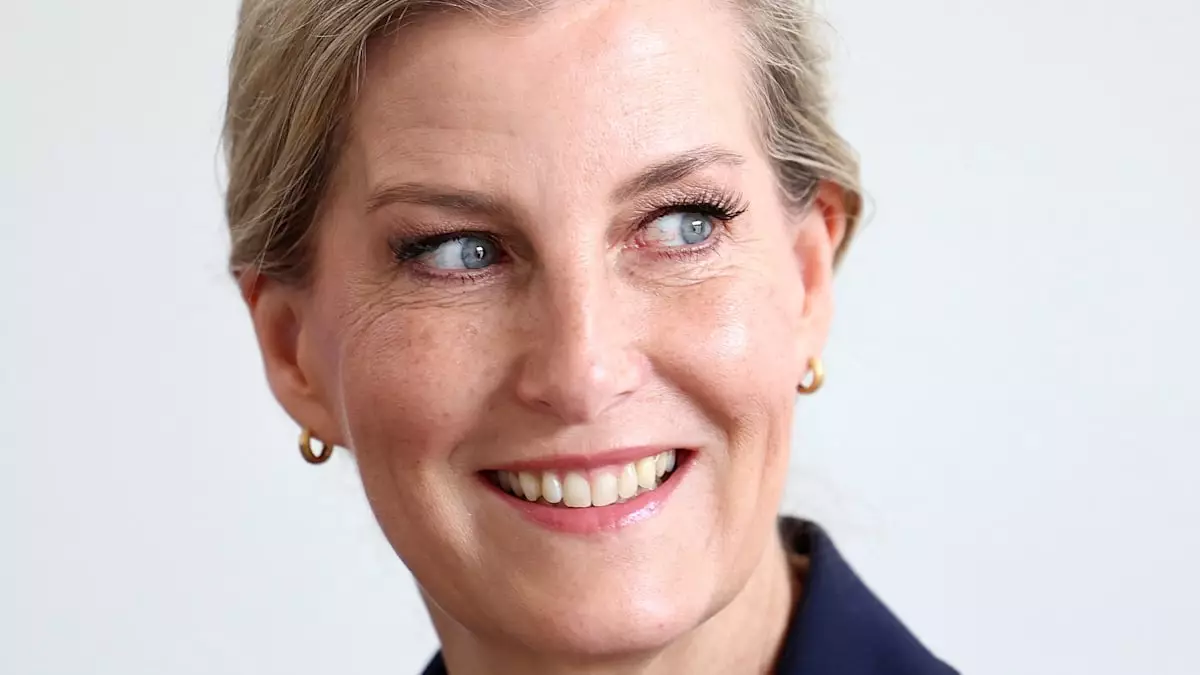The Duchess of Edinburgh has once again captured the attention of both admirers and critics alike, thanks to her recent visit to Tanzania. Not merely a royal figurehead, the Duchess took a significant step forward by addressing critical health issues during a reception highlighting the UK’s partnership with Tanzania in combating illnesses such as trachoma. Her ambition to eliminate this painful and contagious disease from across the Commonwealth by the year 2030 demonstrates a commitment to global health that resonates deeply with the ideals of service and philanthropy that are often associated with the royal family.
As she delivered her inspiring speech, the Duchess’s words were imbued with genuine admiration for the Tanzanian healthcare workers who tirelessly combat neglected tropical diseases. Her thoughtful expression of gratitude illustrated her understanding of the nuanced challenges faced by communities striving for health equity. By highlighting the importance of inclusion and equality, she not only championed a cause but also used her platform to amplify the voices often drowned out by the weight of systemic issues.
While her advocacy captured the essence of the event, fashion cannot be overlooked. The Duchess was seen in an exquisite Zimmermann ‘Halliday’ ruffled floral-print linen midi dress, which exuded both elegance and a sense of relaxed charm. Priced at £895, the dress showcases a remarkable floral motif with intricate ruffle details that elevate its aesthetic appeal. The choice of attire aligns with royal expectations while remaining approachable enough for a public health discussion, striking a balance that many royal observers appreciate.
The design of the dress is testament to contemporary fashion’s embrace of both artistry and wearability. With a fitted waist and flowing design, this dress serves as an exemplary option for diverse settings—from garden parties to formal dinners. The Duchess’s ability to choose a piece that marries style with a purposeful occasion reflects not only her personal taste but also her understanding of the influential role that royal appearances can play in popularizing philanthropic endeavors.
During her trip, the Duchess also visited a trachoma outreach camp at the Mlandizi Health Centre, where she observed firsthand the intricate steps being taken to provide screenings and surgical procedures for those affected. Her keen interest in the details of ongoing work underscores a commitment to grasping the practical aspects of health initiatives. By interacting with healthcare workers and engaging in conversation about their pressing challenges, the Duchess displayed a humanizing touch often missing from distant leadership roles.
In her interactions, she articulated an important message: that admiration and gratitude should go hand-in-hand with action and advocacy. Such sentiments not only bolster morale among healthcare workers but also serve as a stimulating reminder of the global responsibility champions of health must shoulder.
The Duchess of Edinburgh’s tireless dedication to public health issues, articulated through her regal presence and heartfelt messages, invites a rethinking of the modern monarchy’s role in addressing pressing global challenges. By using her platform for health advocacy, she embodies a fresh narrative that aligns royal duty with social responsibility. The blend of her fashion choices with her focused mission creates a striking visual of a contemporary royal doing more than merely attending events—she is enacting real change.
While some may focus solely on the sartorial choices of royal figures, it is essential to appreciate the deeper work being carried out behind the scenes. The Duchess’s appearances not only draw attention to pressing health issues but also make substantial contributions toward reshaping public dialogues about health equity and access. Her enduring commitment could well inspire future generations to consider how they can similarly leverage their platforms to promote transformation within society.
The Duchess of Edinburgh’s recent trip to Tanzania exemplifies a powerful combination of advocacy, healthcare, and thoughtful representation through fashion. It is a refreshing reminder that royal engagements can extend far beyond ceremonial roles, potentially driving impactful social change for generations to come.


Leave a Reply